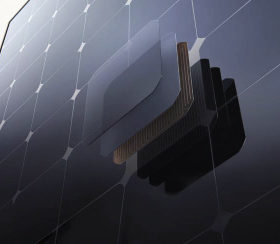
SunPower and Maxeon Solar Technologies finalized their plan to split into two independent entities, while Austrian solar developer Energy BG 1 revealed plans to build a huge unsubsidized solar project in Bulgaria.
SunPower and Maxeon Solar Technologies have finally completed a strategic transaction they announced last November to separate into two independent public companies. “Now is the right time for this strategic spinoff, allowing both SunPower and Maxeon to invest in key programs to drive their future profitable growth,” said SunPower CEO Tom Werner. Jeff Waters will serve as CEO of Singapore-based Maxeon Solar, which has panel and cell factories in France, Malaysia, Mexico, and the Philippines. Concurrent with this transaction is an equity investment of $298 million into Maxeon by long-time partner Zhonghuan Semiconductor, according to Werner’s blog.
Energy BG 1 plans to build a 400 MW solar power plant in Haskovo municipality, southern Bulgaria. According to local media outlet Haskovo.net, the solar plant will offer annual power generation of 560 GWh on a site spanning 400 hectares. The project will sell electricity to unspecified customers under a private power purchase agreement, the news outlet said. Upon completion, the facility will become the country’s largest solar plant and the first new PV array to be built since the development of large-scale solar was halted in Bulgaria with the termination of the feed-in tariff scheme in 2013. Since then, only a few megawatts of residential PV have been connected to the national grid.
Shiv Nadar University researchers in India have synthesized sulfur-rich copolymers from industrial waste as an alternative cathode material for Lithium-sulfur (Li-S) batteries. Once in production, the technology will make Li-S batteries cheaper and more sustainable, while offering up to three times more energy density and better intrinsic flame-retardant properties than the Li-ion options that are currently available for everyday use. The researchers used by-products from the petroleum industry (sulfur), agro-waste elements, copolymers such as cardanol (a by-product of cashew nut processing), and eugenol (clove oil) as cathodic materials. The use of cardanol for sulfur-based structures to create cathode materials resulted in enhanced capacity retention (among the highest charge capacities reported) and longer battery life in a significantly smaller battery unit. Eugenol copolymer (derived from clove oil) is environmentally sustainable, halogen-free, flame-retardant, and is less combustible, making the battery safer to use.
Lắp đặt điện mặt trời Khải Minh Tech
https://ift.tt/2X7bF6x
0906633505
info.khaiminhtech@gmail.com
80/39 Trần Quang Diệu, Phường 14, Quận 3
Lắp đặt điện mặt trời Khải Minh Tech
https://ift.tt/2ZH4TRU
Không có nhận xét nào:
Đăng nhận xét